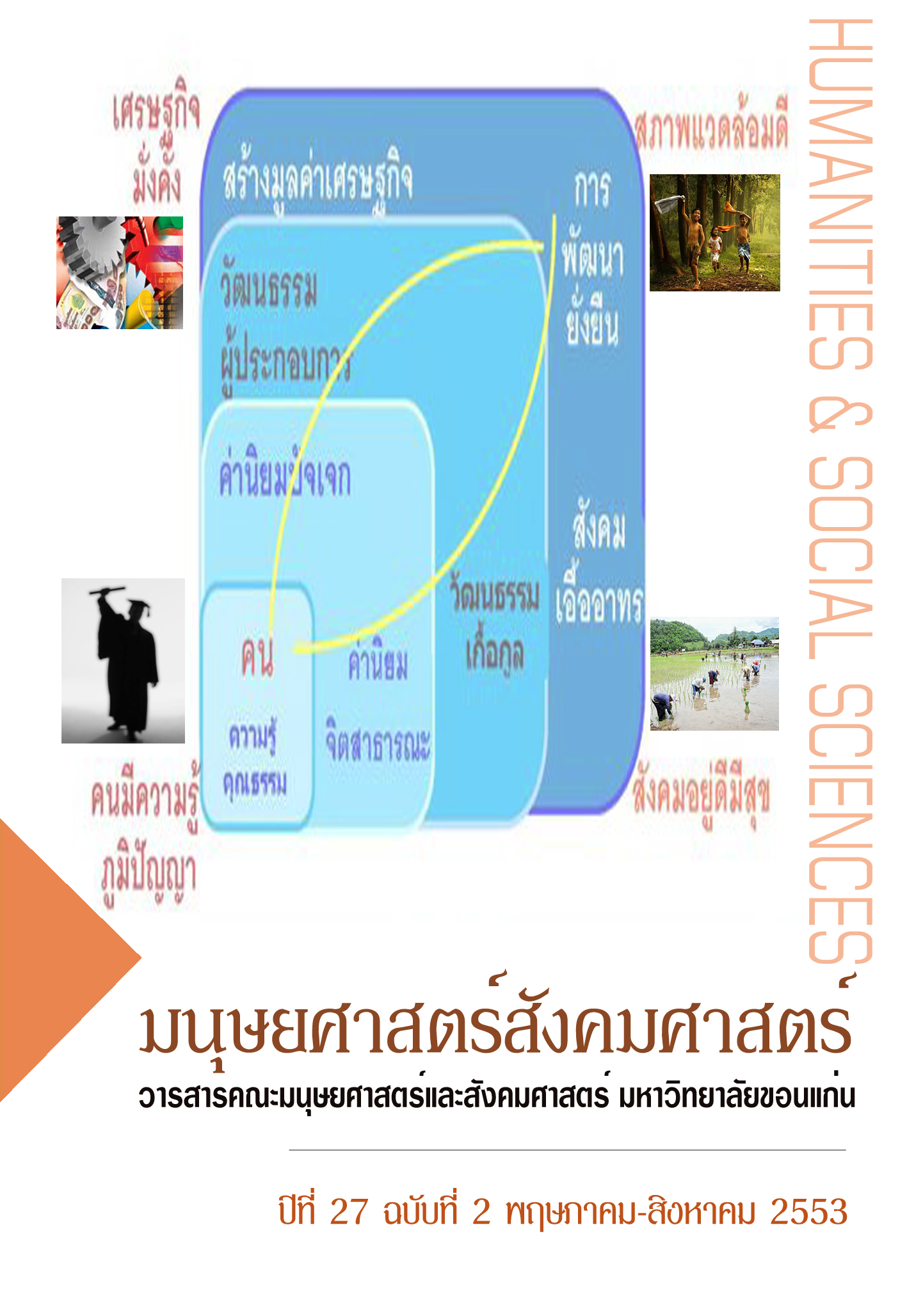บทวัฒนธรรมของการขอโทษในภาษาไทย
Keywords:
ชุดคำศัพท์พื้นฐาน, คำศัพท์พื้นฐาน, บทวัฒนธรรม, การขอโทษ, หน้า, ความสุภาพ, NSM, Semantic primes, Cultural Script, Apologizing, Face, PolitenessAbstract
บทคัดย่อ
งานวิจัยนี้มีวัตถุประสงค์เพื่อวิเคราะห์ชุดคำศัพท์พื้นฐาน (Natural Semantic Metalanguage; NSM) ในภาษาไทย แล้วนำชุดคำศัพท์ที่ได้มาเขียนบรรยายความหมายของคำว่า “ขอโทษ” ตามทฤษฎีบทวัฒนธรรม ข้อมูลที่ใช้ในการวิจัยได้มาจากฐานข้อมูลภาษาไทยบนเว็บไซต์ http://www.arts-chula.ac.th/~ling/Thai
ผลการวิจัยพบชุดคำศัพท์พื้นฐานในภาษาไทยจำนวนทั้งสิ้น 62 คำ โดยพบว่าคนไทยใช้คำว่า “ขอโทษ” ในสถานการณ์ที่แตกต่างกัน และเพื่อสื่อความหมายที่แตกต่างกันรวม 8 ประการ ดังนี้
เมื่อได้กระทำสิ่งที่ไม่ดีต่อผู้อื่น เมื่อต้องการรบกวนผู้อื่น เมื่อต้องการขออนุญาตผู้อื่น เมื่อต้องการเสนอความเห็น เมื่อต้องการพูดประชด เมื่อต้องการต่อว่าผู้อื่น เมื่อต้องการปฏิเสธและ เมื่อต้องการสั่ง
นอกจากนี้ยังพบว่าคำว่า “ขอโทษ” ในสังคมไทยมีความสัมพันธ์กับคำว่า “หน้า” และ “ความสุภาพ” มากกว่า “การกระทำความผิด” ดังนั้นจึงพบว่าคนไทยจะกล่าวคำขอโทษในสถานการณ์ที่หลากหลาย แม้ไม่ได้กระทำความผิดก็ตาม ลักษณะเช่นนี้สะท้อนให้เห็นว่าสังคมไทยคำนึงถึงเรื่องหน้าและความรู้สึกของผู้อื่นมากกว่าสังคมญี่ปุ่นและสังคมตะวันตก
คำสำคัญ : ชุดคำศัพท์พื้นฐาน, คำศัพท์พื้นฐาน, บทวัฒนธรรม, การขอโทษ, หน้า, ความสุภาพ
Abstract
This paper aims at analyzing Semantic primes in Thai and describing the meanings of Apologizing using NSM based on Cultural Script model. The data in which this analysis is based are from http://www.arts-chula.ac.th/~ling/Thai .
The result revealed that there were 62 primes in Thai. Also, found that Thai people used the word “Apologize” in the 8 situations: doing bad thing to others, bothering, asking for permission, giving an idea, satirizing, blaming, refusing and ordering.
It was also found that the word “Apologize” in Thai was more associated with “face” and “politeness” than “the offensive”. This caused Thai people apologized in various situations even though there was no offensive. This uses of apologizing reflected that Thai society cared for participant’s “face” and “feeling” more than Japanese and Western cultures.
Keywords : NSM, Semantic primes, Cultural Script, Apologizing, Face, Politeness



